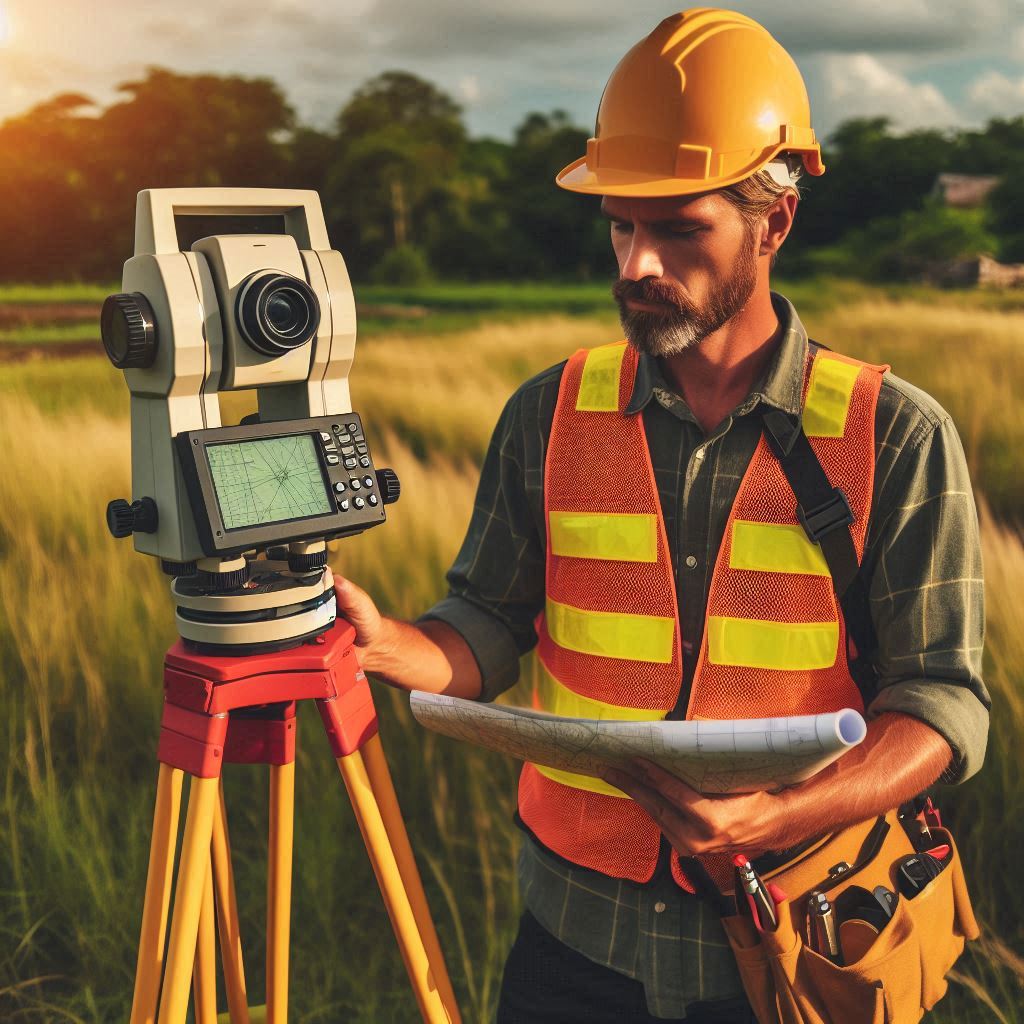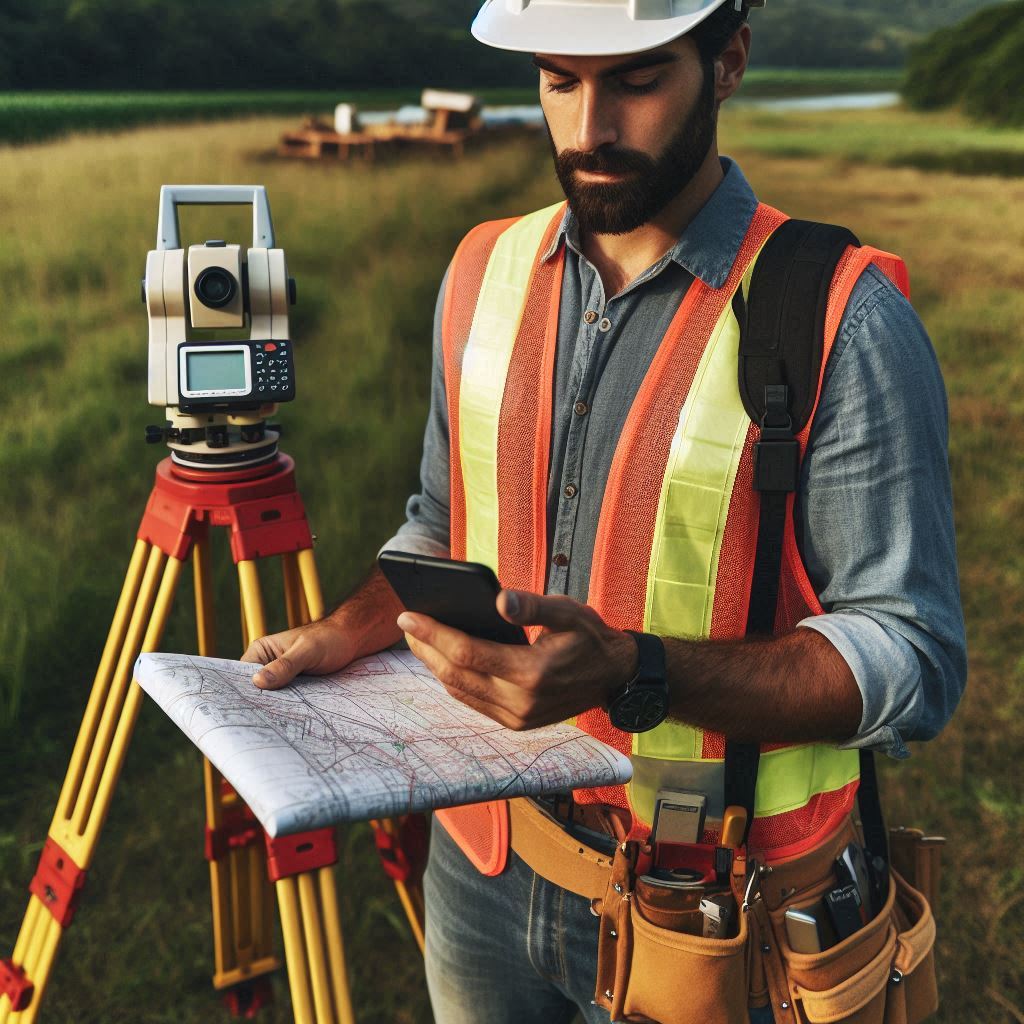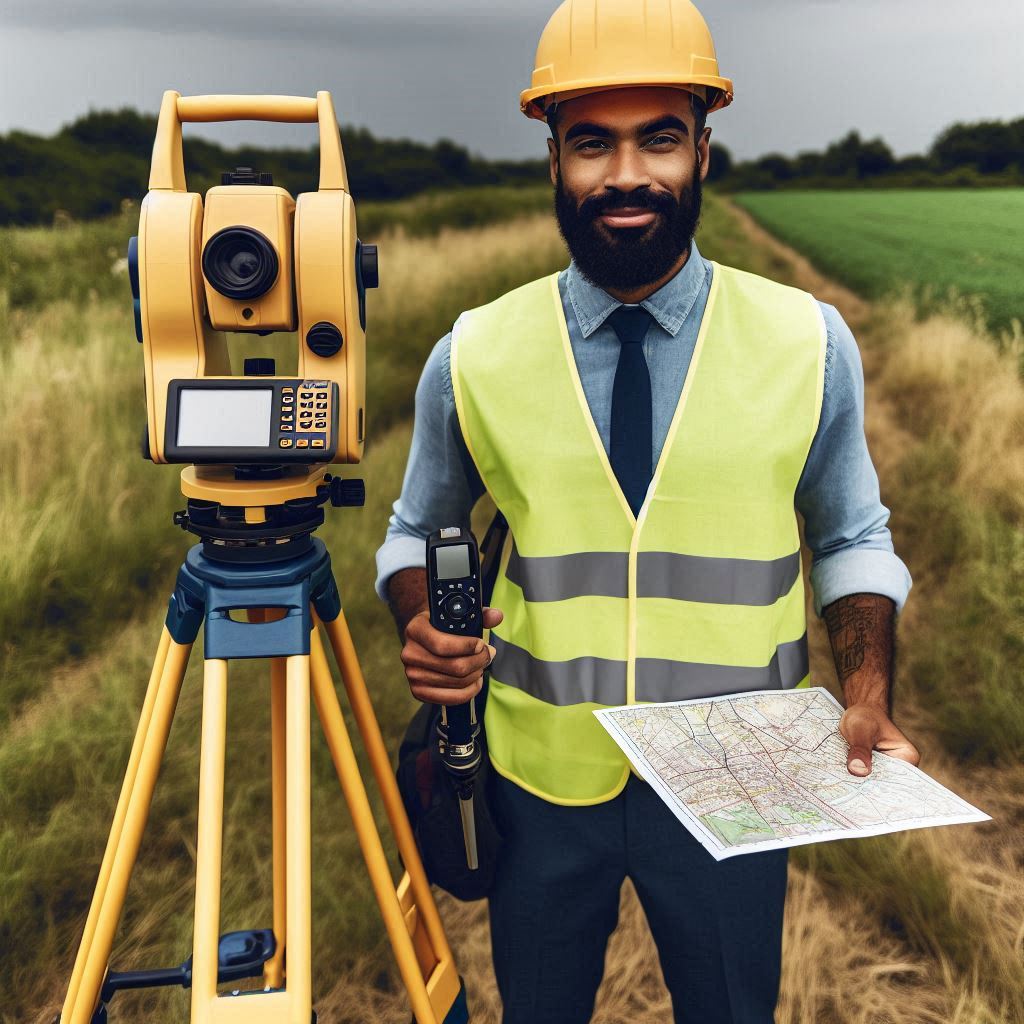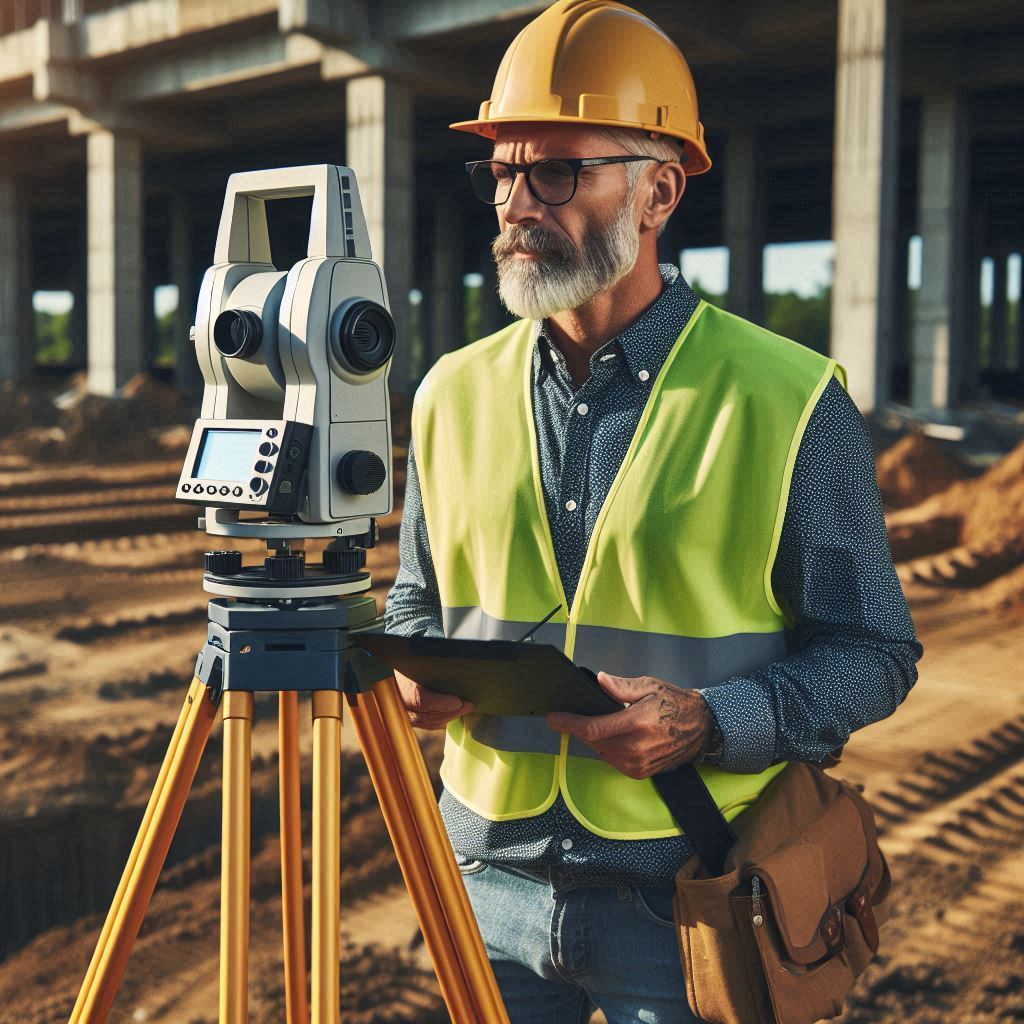Introduction
The Importance of Surveying and Mapping Technicians in Various Industries
Surveying and mapping technicians play a critical role across various industries, such as construction, engineering, and urban planning.
They provide essential data that ensures the accuracy of project designs and land assessments.
Their work supports the creation of reliable maps and layouts, which are crucial for infrastructure development and successful project execution.
These technicians help shape the physical environment by providing precise measurements and data essential for decision-making and planning.
The Role of Education in Shaping the Career Path of These Technicians
Education is vital in shaping the career path of surveying and mapping technicians.
It equips them with the technical skills necessary for accurate measurements and data analysis.
Proper training ensures they are proficient with advanced tools and techniques, which enhances their efficiency and precision.
An educational background also opens doors to career advancement and specialization within the field.
For those interested in pursuing this career, investing in education and training is crucial.
It provides the foundation needed to excel and make a significant impact in the industry.
Embrace educational opportunities to become a highly skilled professional in this dynamic field.
Overview of the profession
The Responsibilities of Surveying and Mapping Technicians
Surveying and mapping technicians are essential for gathering and analyzing spatial data.
Their core responsibilities include measuring land, conducting surveys, and preparing detailed maps.
They use advanced tools like GPS systems, total stations, and drones to ensure accuracy.
These technicians provide data that is crucial for various applications, from designing infrastructure to environmental assessments.
They also prepare reports and create maps that represent physical features precisely.
Their work ensures that projects are based on reliable data, preventing costly mistakes and ensuring project success.
The Different Industries Where These Technicians Work
Surveying and mapping technicians are employed across a range of industries.
In construction, they help design and layout projects by measuring land and determining boundaries.
Their accurate surveys are vital for building structures according to specific plans.
Engineers in the infrastructure sector rely on these technicians for data on roads, bridges, and utilities.
Their precise measurements support the safe and effective design of these projects.
In environmental science, technicians collect data for assessments and conservation efforts.
They monitor land use and natural resources, aiding in the protection of ecosystems.
Their data helps scientists make informed decisions about environmental management.
Additionally, technicians often work with urban planners and real estate professionals, providing crucial data for planning and development.
Each industry benefits from the technicians’ ability to analyze and interpret spatial data.
Whether working outdoors or in an office, their skills ensure that various projects are executed accurately and efficiently.
Read: Biomedical Engineering: Regulatory Affairs
Educational requirements
The Minimum Education Needed to Become a Surveying and Mapping Technician
To become a surveying and mapping technician, the minimum educational requirement is a high school diploma or equivalent.
Courses in mathematics, geometry, and physical sciences are particularly beneficial.
These subjects provide a foundation for understanding measurements and spatial data analysis.
Some positions may also require specific vocational training or an associate degree in surveying, mapping, or a related field.
Hands-on experience with surveying equipment and technology is essential, and many technicians gain this through internships or on-the-job training.
The Importance of Pursuing Post-Secondary Education in Fields Related to Surveying and Mapping
While a high school diploma can open doors, pursuing post-secondary education significantly enhances career prospects.
An associate degree or bachelor’s degree in surveying, mapping, or a related field provides a deeper understanding of advanced techniques and technologies.
These programs often include coursework in land surveying, geographic information systems (GIS), and data analysis, which are crucial for the role.
Post-secondary education also offers opportunities for practical experience through labs, internships, and fieldwork.
This hands-on training helps technicians become proficient with the latest tools and methods.
Furthermore, advanced education can lead to better job prospects, higher salaries, and opportunities for career advancement.
It also prepares technicians for certifications that may be required for certain positions.
In summary, while a high school diploma is the minimum requirement, pursuing further education in surveying and mapping is highly beneficial.
It provides a comprehensive understanding of the field, practical experience, and improved career opportunities.
Read: Graduate Studies in Biomedical Engineering
Recommended degrees and certifications
The Common Degrees That Aspiring Surveying and Mapping Technicians Can Pursue
Aspiring surveying and mapping technicians typically pursue degrees that provide relevant knowledge and skills. Common degrees include:
- Associate‘s Degree in Surveying Technology: Focuses on foundational skills in land surveying, mapping, and technology use.
- Associate‘s Degree in Geographic Information Systems (GIS): Emphasizes spatial data analysis and mapping techniques.
- Bachelor‘s Degree in Surveying: Offers advanced knowledge in land surveying, geodesy, and cartography.
- Bachelor‘s Degree in Geography: Includes coursework in spatial analysis, mapping, and environmental science.
- Bachelor‘s Degree in Geomatics: Covers surveying, mapping, and geospatial technologies.
These degrees equip students with essential skills and knowledge for the profession.
Certifications or Licenses That May Be Required or Beneficial for This Career
Certifications and licenses enhance a technician‘s qualifications and career prospects. Key certifications and licenses include:
- Certified Survey Technician (CST): Offered by the National Society of Professional Surveyors (NSPS), this certification demonstrates competence in surveying technology.
- Licensed Surveyor: Required in many states for those who wish to offer surveying services independently or lead survey teams. This typically requires passing the Fundamentals of Surveying (FS) exam and the Principles and Practice of Surveying (PS) exam.
- Geographic Information Systems Professional (GISP): Provided by the GIS Certification Institute, this certification highlights expertise in GIS technology and applications.
Obtaining these certifications and licenses can improve job prospects, credibility, and earning potential in the field of surveying and mapping.
Read: Biomedical Engineering: Impact on Public Health

Core coursework
The Key Subjects That Students Studying to Become Surveying and Mapping Technicians Typically Take
Students pursuing a career as surveying and mapping technicians generally take coursework in several core subjects:
- Mathematics: Includes algebra, trigonometry, and calculus. Essential for performing measurements and calculations accurately.
- Geology: Provides an understanding of earth materials and landforms. Helps in interpreting terrain and understanding soil and rock types.
- Geographic Information Systems (GIS): Teaches the use of software for mapping and spatial analysis. Critical for creating and managing digital maps.
- Surveying Principles: Covers fundamental techniques and tools used in land surveying. Includes learning about instruments like total stations and GPS systems.
- Cartography: Focuses on map design and the principles of visual representation. Helps in creating clear, accurate maps for various applications.
- Surveying Equipment and Techniques: Provides hands-on experience with the tools and methods used in the field. Includes practical training with surveying instruments and technology.
How These Courses Help Develop the Necessary Skills and Knowledge for the Profession
Mathematics courses are vital for accurate calculations and measurements.
They help students understand and apply geometric principles and trigonometric functions necessary for surveying tasks.
Geology courses equip students with knowledge about landforms and soil types.
This understanding is crucial for interpreting survey data and assessing land conditions.
GIS courses teach students how to use mapping software and spatial analysis tools.
These skills are essential for creating detailed and accurate maps, managing geographic data, and performing spatial analyses.
Surveying principles and techniques provide foundational knowledge of how to conduct surveys, use surveying equipment, and follow best practices in data collection.
Practical experience with these tools helps students develop the skills needed to perform surveys accurately and efficiently.
Cartography courses focus on map design and representation.
This knowledge ensures that students can create maps that are not only accurate but also easy to understand and use.
In summary, core coursework in mathematics, geology, GIS, surveying principles, and cartography builds the technical skills and knowledge necessary for a successful career as a surveying and mapping technician.
These subjects collectively provide the expertise needed to perform precise measurements, analyze data, and create useful maps.
Read: Biomedical Engineer: Working in Healthcare Tech
Hands-on training
The Importance of Gaining Practical Experience Through Internships, Co-ops, or Fieldwork
Gaining practical experience through internships, co-ops, or fieldwork is crucial for aspiring surveying and mapping technicians.
These opportunities provide hands-on experience with the tools and techniques used in the profession.
Internships and co-ops allow students to work alongside experienced professionals, gaining insights into daily tasks and industry practices.
Fieldwork provides real-world exposure to surveying sites, helping students apply theoretical knowledge in practical settings.
This experience is invaluable for understanding the complexities of the job and developing problem-solving skills.
How Hands-On Training Can Supplement Classroom Learning and Provide Real-World Exposure to the Profession
Hands-on training complements classroom learning by offering practical application of theoretical concepts.
While classroom courses cover fundamental knowledge, practical experience helps students learn how to use equipment, interpret data, and conduct surveys in real-world conditions.
Fieldwork and internships allow students to see how classroom principles are applied on actual projects, enhancing their understanding and skills.
Practical experience also helps students build a professional network and gain industry insights.
Working in real-world environments exposes them to various challenges and scenarios that may not be covered in textbooks.
This exposure prepares them for the demands of the job and improves their problem-solving abilities.
In summary, hands-on training through internships, co-ops, or fieldwork is essential for aspiring surveying and mapping technicians.
It provides practical experience, supplements classroom learning, and offers real-world exposure to the profession.
This experience is crucial for developing the skills and knowledge needed for a successful career in surveying and mapping.
Read: The Impact of Aerospace Engineering on Modern Life
Discover More: Biomedical Engineering: Public and Private Sector Jobs
Transform Your Career Today
Unlock a personalized career strategy that drives real results. Get tailored advice and a roadmap designed just for you.
Start NowContinuing education
The Benefits of Ongoing Professional Development for Surveying and Mapping Technicians
Ongoing professional development is crucial for surveying and mapping technicians to stay current with industry trends and advancements.
The field of surveying and mapping continually evolves with technological advancements and new methodologies.
By engaging in continuing education, technicians can learn about the latest tools, software, and techniques, ensuring their skills remain relevant and competitive.
This continual learning helps technicians improve their efficiency, accuracy, and overall effectiveness in their roles.
Additionally, staying updated with industry trends enables technicians to adapt to changes, making them valuable assets to their employers.
Information on Resources for Continuing Education
There are several resources available for surveying and mapping technicians to pursue continuing education:
- Workshops: Many professional organizations and institutions offer workshops focused on specific skills or technologies. These workshops provide hands-on experience and practical knowledge.
- Conferences: Industry conferences, such as those hosted by the National Society of Professional Surveyors (NSPS) or the American Congress on Surveying and Mapping (ACSM), offer opportunities to learn from experts, network with peers, and explore new developments in the field.
- Online Courses: Online platforms like Coursera, Udemy, and LinkedIn Learning offer courses on surveying techniques, GIS, and related topics. These courses provide flexibility and accessibility for ongoing learning.
- Professional Organizations: Membership in organizations like the NSPS or the GIS Certification Institute (GISCI) often includes access to educational resources, webinars, and industry publications.
- Certifications: Pursuing additional certifications or renewals, such as the Certified Survey Technician (CST) or Geographic Information Systems Professional (GISP), provides structured learning and validation of skills.
In summary, ongoing professional development is essential for surveying and mapping technicians to stay updated with industry trends and advancements.
Resources such as workshops, conferences, online courses, and professional organizations offer valuable opportunities for continuing education. Engaging in these activities helps technicians enhance their skills and remain competitive in their field.
Skill development
The Key Skills Needed to Succeed as a Surveying and Mapping Technician
Several key skills are essential for success as a surveying and mapping technician:
- Attention to Detail: Precision is crucial in measuring and mapping. Technicians must accurately record and interpret data to ensure reliability.
- Problem-Solving: Surveying often involves addressing unexpected issues or challenges. Technicians need to find effective solutions quickly and efficiently.
- Communication: Effective communication is necessary for collaborating with engineers, architects, and other professionals. Clear reporting and data presentation are also important.
- Technical Proficiency: Familiarity with surveying equipment, GIS software, and data analysis tools is essential for accurate and efficient work.
- Analytical Skills: The ability to analyze and interpret spatial data helps in creating accurate maps and reports.
Tips on How Aspiring Technicians Can Develop and Strengthen These Skills Throughout Their Education and Career
- Attention to Detail: Practice meticulous data recording and review. During fieldwork or lab exercises, focus on accuracy and double-check your work to minimize errors.
- Problem-Solving: Engage in practical exercises that simulate real-world problems. Participate in projects or case studies that require innovative solutions. Learning from experienced professionals can also provide valuable insights.
- Communication: Develop strong communication skills by participating in group projects or presentations during your studies. Practice writing clear and concise reports. Seek feedback on your communication style and make improvements.
- Technical Proficiency: Take advantage of hands-on training with surveying equipment and software. Seek internships or co-op positions to gain practical experience. Stay updated with new technologies and tools by attending workshops or online courses.
- Analytical Skills: Enhance your analytical abilities through coursework in data analysis and spatial statistics. Work on projects that involve complex data interpretation. Regularly practice analyzing and visualizing data using GIS and other software.
In summary, key skills for surveying and mapping technicians include attention to detail, problem-solving, communication, technical proficiency, and analytical skills.
Aspiring technicians can develop these skills through careful practice, practical experience, effective communication exercises, and continuous learning. Strengthening these abilities will help ensure success in the field.
Uncover the Details: Importance of Data Analysis for Environmental Technicians
Conclusion
The Importance of Education in Preparing Surveying and Mapping Technicians for Their Roles
Education is essential for preparing surveying and mapping technicians.
It provides the foundational skills needed for accuracy and efficiency in the field.
A comprehensive educational background ensures that technicians are well-versed in using advanced tools and techniques.
Proper training is critical for performing complex tasks and solving problems effectively.
Technicians who lack education may struggle with precision and consistency, leading to potential errors and inefficiencies.
Education equips technicians with the knowledge necessary to handle modern technologies and adapt to industry changes.
A strong academic foundation also enhances their ability to interpret data and make informed decisions.
In essence, education is key to mastering the technical and analytical aspects of surveying and mapping.
Encouragement to Consider Pursuing the Necessary Education and Training to Excel in This Dynamic Field
For those considering a career in surveying and mapping, pursuing the right education is crucial.
It opens doors to a variety of career opportunities and professional advancements.
Investing in education and training prepares you to excel in this dynamic field.
With the proper qualifications, you can handle complex projects and adapt to evolving industry demands.
Education is a stepping stone to becoming a highly skilled technician and making a significant impact.




